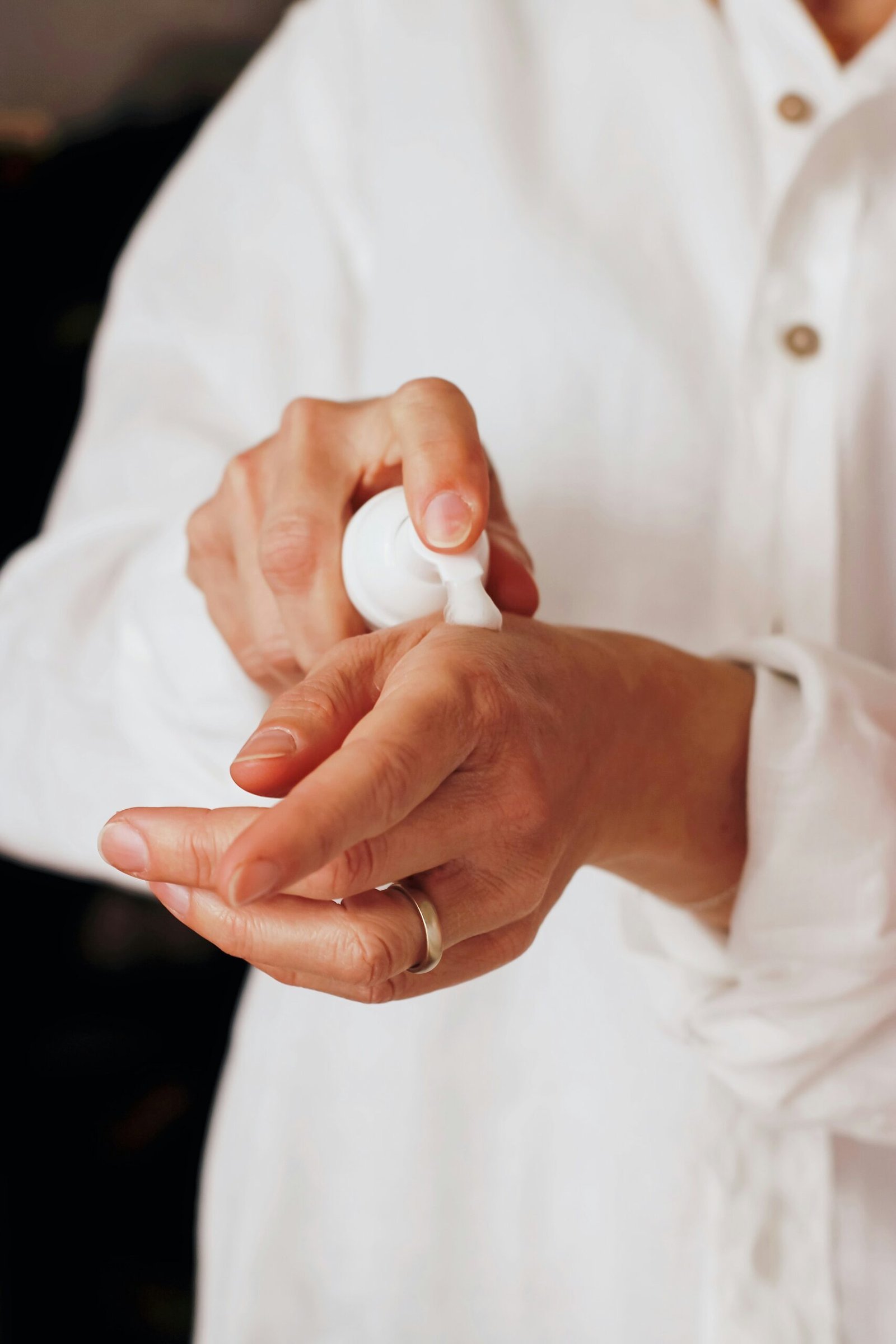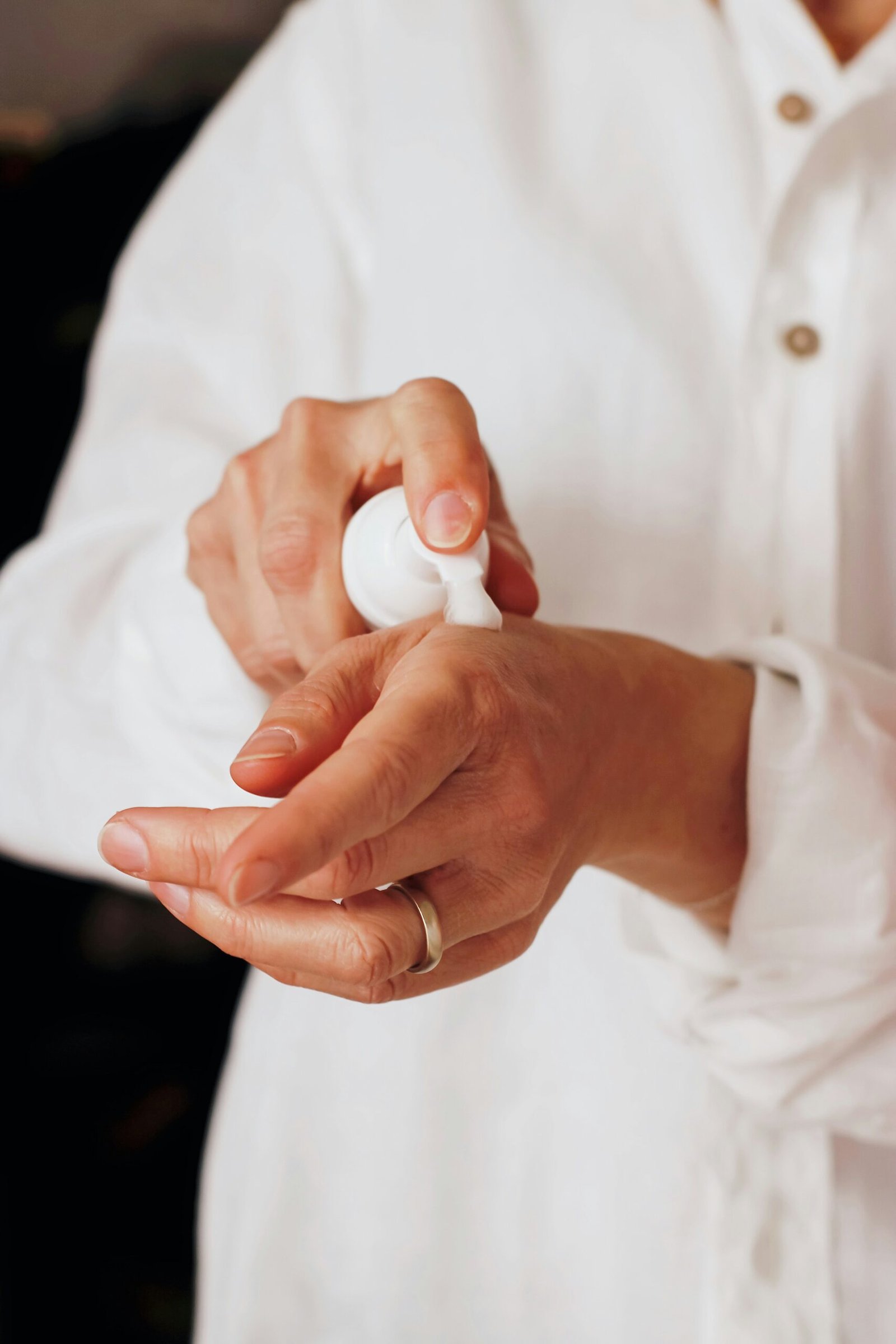
Introduction to Face Wash
Face wash is a fundamental component of any skincare routine, serving as the first step in achieving and maintaining healthy skin. At its core, face wash is designed to cleanse the skin, effectively removing dirt, oil, and impurities accumulated throughout the day or night. This crucial function not only refreshes the skin but also prepares it for subsequent skincare products, enhancing their efficacy.
The importance of incorporating a suitable face wash into your daily regimen cannot be overstated. Cleansing your face with an appropriate product helps to maintain the skin’s natural balance and prevent common issues such as clogged pores, acne, and dullness. Moreover, it aids in the removal of makeup residues, pollutants, and dead skin cells, which can otherwise lead to various skin problems.
Choosing the right face wash for your skin type is paramount to achieving optimal results. Different skin types have unique needs and respond differently to various ingredients. For instance, individuals with oily skin may benefit from a face wash containing salicylic acid or benzoyl peroxide, which can help control excess oil and prevent breakouts. On the other hand, those with dry or sensitive skin should opt for gentle, hydrating cleansers that contain soothing ingredients like aloe vera or hyaluronic acid to avoid irritation and maintain moisture levels.
In summary, a well-chosen face wash is essential for maintaining clear, healthy skin. By understanding the basic functions of face wash and selecting a product tailored to your specific skin type, you can significantly improve the overall appearance and health of your skin, paving the way for a more effective skincare routine.
Understanding Your Skin Type
Identifying your skin type is the foundational step in choosing the most suitable face wash. Your skin type influences the kind of products that will work best for your skin, helping to maintain its health and appearance. Generally, skin types can be categorized into five main types: oily, dry, combination, sensitive, and normal. Understanding which category you fall into can significantly enhance your skincare routine.
One effective method to determine your skin type is the bare-faced test. To perform this test, start by washing your face with a mild cleanser and pat it dry. Avoid applying any products for about an hour. After this period, observe how your skin behaves:
– If your skin feels tight and appears flaky or rough, it is likely dry.- If your face looks shiny and feels greasy, particularly in the T-zone (forehead, nose, and chin), you probably have oily skin.- If your skin exhibits both oily and dry patches, you likely possess combination skin.- If your skin feels comfortable and balanced without excessive dryness or oiliness, congratulations, you have normal skin.- If your skin reacts with redness, itching, or burning sensations to various products or environmental factors, you may have sensitive skin.
Another method is to observe your skin’s behavior throughout the day. Pay attention to how it feels and looks in the morning, afternoon, and evening. Notice any significant changes or patterns, such as increased oiliness or dryness in certain areas. This can provide valuable insights into your skin type.
Understanding your skin type is a critical step in selecting the most effective face wash. It ensures that you choose a product designed to address your skin’s specific needs, enhancing its health and appearance. Tailoring your skincare regimen according to your skin type can lead to more effective results and a healthier complexion.
Ingredients to Look For and Avoid
When selecting a face wash, understanding the ingredients that cater to your specific skin type can significantly improve your skincare routine. For those with oily skin, ingredients like salicylic acid are highly beneficial. Salicylic acid penetrates deep into the pores, helping to remove excess oil and reduce acne. Similarly, niacinamide can help regulate sebum production and minimize the appearance of pores.
Individuals with dry skin should look for hydrating ingredients such as hyaluronic acid. Hyaluronic acid is known for its exceptional ability to retain moisture, keeping the skin plump and hydrated. Glycerin is another effective ingredient that attracts water to the skin, ensuring it remains moisturized throughout the day.
For sensitive skin, ingredients that soothe and calm are essential. Chamomile and aloe vera are excellent choices; chamomile has anti-inflammatory properties that reduce redness and irritation, while aloe vera provides a cooling effect and helps to heal the skin. Additionally, face washes containing oatmeal can offer gentle exfoliation and relief from itching and dryness.
On the other hand, certain ingredients should be avoided as they can be harsh and potentially harmful to the skin. Sulfates, commonly found in many cleansing products, can strip the skin of its natural oils, leading to dryness and irritation. Parabens, used as preservatives, have been linked to hormonal disruptions and should be avoided. Artificial fragrances are another red flag; they can cause allergic reactions and exacerbate skin sensitivity.
By paying close attention to the ingredients in your face wash, you can make informed choices that benefit your skin type while avoiding components that may cause harm. This approach ensures a healthier, more effective skincare routine tailored to your unique needs.
Types of Face Washes
When it comes to selecting the right face wash, understanding the different types available can significantly influence your skincare routine’s success. The market offers a variety of face washes, each tailored to address specific skin needs and conditions. Here, we delve into the various types, including their unique attributes and the skin types they best cater to.
Foaming Cleansers: These are perhaps the most popular type of face wash. Foaming cleansers are known for their rich lather that effectively removes dirt, oil, and impurities from the skin. They are particularly beneficial for oily and combination skin types as they help manage excess sebum production, leaving the skin feeling clean and refreshed. However, those with dry or sensitive skin may find foaming cleansers too harsh, as they can strip away natural oils.
Gel Cleansers: Gel cleansers are a great option for individuals with oily or acne-prone skin. Their lightweight, gel-like consistency allows them to penetrate pores deeply, aiding in the removal of excess oil and preventing breakouts. Many gel cleansers also contain exfoliating properties, which help in unclogging pores and keeping the skin smooth and clear. Unlike foaming cleansers, they are generally less drying and can be suitable for sensitive skin as well.
Cream Cleansers: Cream cleansers are ideal for those with dry or mature skin. Their creamy texture provides a gentle, hydrating cleanse that does not strip the skin of its natural moisture. These cleansers often contain nourishing ingredients such as oils and emollients that help to replenish and maintain the skin’s hydration levels. People with sensitive skin may also benefit from the soothing properties of cream cleansers.
Oil-Based Cleansers: Contrary to what one might think, oil-based cleansers are suitable for all skin types, including oily skin. These cleansers work on the principle of ‘like dissolves like,’ meaning they effectively dissolve excess oil, makeup, and impurities without disrupting the skin’s natural balance. They are particularly effective in removing waterproof makeup and sunscreen, making them a staple in many double-cleansing routines.
Micellar Water: Micellar water is a versatile, no-rinse cleansing option that works well for all skin types, especially sensitive skin. It contains micelles, which are tiny oil molecules suspended in water that attract dirt and oil, lifting them away from the skin. Micellar water is gentle yet effective, making it a great choice for a quick cleanse or as a pre-cleanse step in a more thorough skincare regimen.
By understanding the specific benefits and suitability of each type of face wash, you can make an informed choice that aligns with your unique skin care needs, ensuring a healthier and more radiant complexion.
How to Properly Use Face Wash
Using face wash effectively is crucial for maintaining healthy skin. The first step is to choose a face wash that suits your skin type. Once you have the right product, start by wetting your face with lukewarm water. This temperature is ideal as it helps to open up your pores without causing skin irritation.
Next, dispense a small amount of face wash onto your fingertips—a dollop the size of a pea is usually sufficient. Gently rub your hands together to create a lather before applying it to your face. Focus on areas that are prone to oil buildup, such as the forehead, nose, and chin, commonly referred to as the T-zone.
When applying the face wash, use gentle circular motions to massage it into your skin. This technique not only helps to remove dirt and impurities but also boosts blood circulation, giving your skin a natural glow. Take your time with this step; a good rule of thumb is to massage the product for about 30 seconds to a minute. Avoid scrubbing too hard, as this can cause irritation and damage to the skin’s surface.
After massaging, it is essential to rinse your face thoroughly with lukewarm water to ensure all the product is removed. Residual face wash can clog pores and lead to breakouts, so make sure no traces are left behind. Once your face is rinsed, gently pat it dry with a clean towel. Avoid rubbing, as this can cause unnecessary friction and irritation.
Following up with other skincare products is equally important. After drying your face, apply a toner to balance your skin’s pH levels, followed by a moisturizer to keep your skin hydrated. If it’s daytime, don’t forget to apply sunscreen to protect your skin from harmful UV rays. By following these steps, you can maximize the benefits of your face wash and maintain a healthy, radiant complexion.
Common Mistakes to Avoid
When it comes to maintaining healthy, balanced skin, choosing the right face wash is only half the battle. Equally important is how you use it. Many individuals unknowingly make mistakes that can compromise their skin’s health and appearance. Here are some common mistakes to avoid and practical advice on how to correct them.
First and foremost, over-washing your face can strip the skin of its natural oils, leading to dryness and irritation. It’s essential to wash your face no more than twice a day – once in the morning and once before bed. If you have particularly dry or sensitive skin, you might even consider washing just once daily.
Another frequent mistake is using hot water. While it might feel soothing, hot water can deplete your skin’s moisture barrier, leading to dryness and potential irritation. Opt for lukewarm water instead, as it is gentle on the skin and effective in cleaning without causing harm.
Scrubbing too hard is another common error. Many believe that vigorous scrubbing will result in cleaner skin, but it actually can cause micro-tears and exacerbate conditions like acne or rosacea. Use gentle, circular motions with your fingertips to apply your face wash, ensuring a thorough yet gentle cleanse.
Not removing makeup before washing is a critical mistake. Makeup can create a barrier that prevents your face wash from penetrating the skin effectively. Always use a makeup remover or cleansing oil before using your face wash to ensure that all makeup is thoroughly removed, allowing your cleanser to work more effectively.
By avoiding these common mistakes, you can optimize the benefits of your face wash and maintain healthier, balanced skin. Remember, the key is to treat your skin with care, using gentle products and techniques that support its natural functions.
Finding the right face wash for your skin type is crucial for maintaining a healthy and radiant complexion. Here are some tailored recommendations for different skin types, ranging from budget-friendly options to high-end products.
Dry Skin
If you have dry skin, look for face washes that are hydrating and gentle. A budget-friendly option is the Cetaphil Gentle Skin Cleanser, which is known for its moisturizing properties and non-irritating formula. For a more luxurious choice, consider the Fresh Soy Face Cleanser, which contains amino acid-rich soy proteins that help maintain the skin’s elasticity and moisture levels.
Oily Skin
For oily skin, it’s essential to use a face wash that can control excess sebum production without stripping the skin of its natural oils. The Neutrogena Oil-Free Acne Wash is a cost-effective option that contains salicylic acid to help combat acne and reduce oiliness. On the higher end, the La Roche-Posay Effaclar Purifying Foaming Gel is formulated with zinc pidolate to cleanse and tighten the pores, making it an excellent choice for oily skin.
Combination Skin
Combination skin requires a balanced approach to address both oily and dry areas. The Garnier SkinActive Micellar Foaming Face Wash is an affordable option that effectively cleanses without over-drying. For a premium product, the Boscia Purifying Cleansing Gel offers a blend of botanical amino acids and antioxidants to balance and purify the skin.
Sensitive Skin
Sensitive skin needs a face wash that is free from harsh chemicals and fragrances. The Simple Kind to Skin Refreshing Facial Wash is an inexpensive choice that is gentle and hypoallergenic. For a high-end alternative, the Avene Antirougeurs Clean Redness-Relief Refreshing Cleansing Lotion is formulated to calm and soothe sensitive skin, minimizing irritation and redness.
Choosing the right face wash tailored to your skin type can make a significant difference in your skincare routine. Whether you opt for budget-friendly or high-end products, the key is to find a formula that addresses your skin’s specific needs effectively.
Conclusion and Final Tips
In conclusion, selecting the appropriate face wash tailored to your skin type is essential for maintaining a healthy and vibrant complexion. Whether your skin is oily, dry, combination, or sensitive, understanding its unique needs and choosing products that cater to those requirements can make a substantial difference. Equally important is the correct usage of face wash: applying it with gentle, circular motions and rinsing thoroughly with lukewarm water to avoid irritation and enhance effectiveness.
Consistency is key in any skincare regimen. Regularly cleansing your face twice daily can help remove impurities, excess oil, and makeup residue, thereby preventing breakouts and promoting a clearer complexion. Additionally, staying hydrated plays a crucial role in supporting skin health, as well-hydrated skin is more resilient and less prone to irritation and dryness.
For those with specific skin concerns or conditions, seeking professional advice from a dermatologist can provide personalized recommendations and ensure that your skincare routine is optimally tailored to your needs. They can offer insights into suitable ingredients and products, and help address any underlying issues that may be affecting your skin’s health.
We encourage you to share your experiences with different face washes and skincare routines in the comments section below. Your insights can be invaluable to others who are on the same journey to find the perfect face wash for their skin type. If you have any questions or need further guidance, feel free to ask. Our community is here to support each other in achieving healthy, glowing skin.


